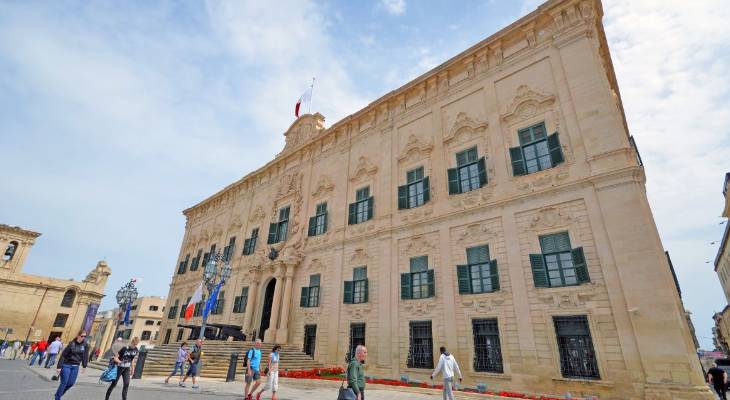English language schools were among the first businesses to be harshly impacted by the COVID-19 pandemic, before Malta even registered its first case.
Locally, language schools’ woes began in early March, when Italy and France banned unnecessary travel, with educational travel included. Malta is popular with French and Italian students visiting language schools during the Easter period, resulting in a spike in cancellations.
In a survey commissioned by The Federation of English Language Teaching Organisations Malta (FELTOM) to Deloitte, it was found that 4,000 students had cancelled as at 5th March. The number jumped by 16,000 cancellations as at 16th March, equivalent to around 7,500 cancellations per week.
According to the Deloitte’s survey, the estimated financial impact to the Maltese economy due to the 20,000 cancellations to-date is worth €23.7 million.
“We are acting very late and I cannot stress the importance of a payroll fund enough,” remarked FELTOM CEO James Perry, who has been in the roll since 2017.
“We had the first school with lay-offs this week, and I believe that from next week other schools will be laying people off. Workers are taking unpaid leave in order to keep their jobs, it is not being forced on anyone, but the reality is not being voiced enough,” said Mr Perry.
FELTOM currently has 21 member schools within its ranks, representing 85 per cent of the local industry. Its schools employ more than 600 full-time equivalents (FTE) employees, with an average monthly salary cost of €1.2 million.
“We are trying to understand how things will look during the summer if we continue like this. When you look at the numbers and you look at the biggest cancellations till now, July and August cancellations haven’t started yet,” explained Mr Perry.
The industry sees around 87,000 per year, he added. Around 50,000 students come in July and August, while the rest make up the shoulder months.
For language schools, February, March and April are not a quiet period. A travel ban on educational travel earlier on, and an EU directive stating the travel bans are a ‘force majeure’ mean schools have been expected to pay for all cancellations.
“So, schools had to repay the student cancellations, and to make matters worse, we had to pay the hotels and accommodation for services booked. We also have to pay staff wages. Language schools are currently in a lose-lose-lose situation.”
He explained that the early impact of the COVID-19 pandemic on language schools’ business led them to be ahead of others in commissioning reports, such as this one, and requesting meetings with the relevant ministers.
“Restaurants and hotels are now feeling the pinch, but we’ve been going through this since the first sanctions were imposed,” he remarked.
On Wednesday evening, Prime Minister Robert Abela announced a €1.8 billion aid package to help businesses get through these difficult times. Mr Perry joins the chorus of voices in the business community who stress that the measures will not stop the loss of jobs.
The Malta Chamber of Commerce and the Malta Chamber of SMEs have both strongly communicated a similar message.
€700 million has been allocated to tax deferrals, €900 million to loan guarantees, while a €210 million injection to assist the economy has also been announced.
Banks are also able to give business a loan-holiday for three months thanks to the allocation of funds, and €350 to employers for each employee needing to self-quarantine.
“We are pushing greatly with regards to assistance for schools trying not to lose the industry” as a result of the impending job losses, Mr Perry said.
Asked about how the aid package helps language schools, Mr Perry pointed towards the offer of a two-day day benefit per week being granted, capped at an €800 monthly wage. This measure is being offered to companies with operational losses.
He said that if his calculations are correct, an employee on a €1,000 wage would mean that the Government pays out €200 while the language school would pay €800.

Office of the Prime Minister / www.viewingmalta.com
Due to a Government measure stating that employees losing their job from 9th March, will be eligible for a special unemployment benefit, also capped at €800 per month.
“It’s making more sense for workers to become redundant than to stay on. The message being sent out there is not the retention of jobs.”
He criticised the Government’s previous statements on the matter, where Economy Minister Silvio Schembri and Prime Minister Robert Abela have said that after six years of profits, its time to share the burden.
“I have been in business for 25 years,” affirmed Mr Perry. “I have never once experienced a company where money is left laying around for a rainy day. You invest it to help the company grow, to improve your business and grow your workforce,” he stressed.
FELTOM was founded by ten established English language schools in 1989. FELTOM is a self-regulating, non-profit organisation, dedicated to promoting professionalism within the English language learning industry by setting and maintaining standards in every aspect of a language stay.
James Perry joined FELTOM in November 2017 as CEO. Prior to joining FELTOM, he worked as Executive Director at the Archbishop’s Seminary. Along with an extensive experience in sales and marketing, he has worked as Deputy Director/Acting Director at the Institute of Tourism Studies, and he currently sits on the English as a Foreign Language (EFL) Monitoring Board.
Main Image:James Perry, FELTOM Chief Executive Officer
